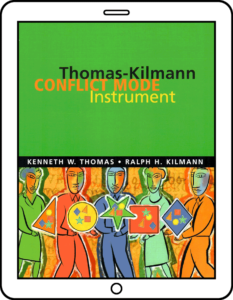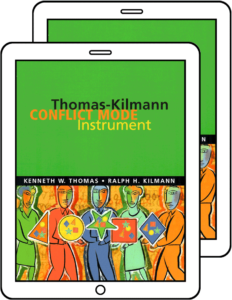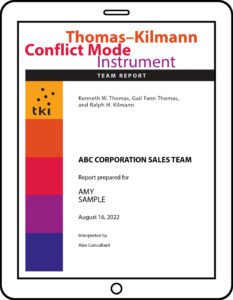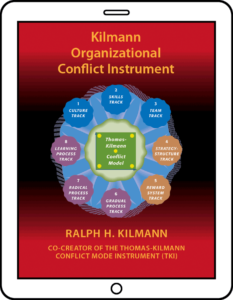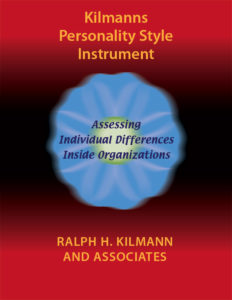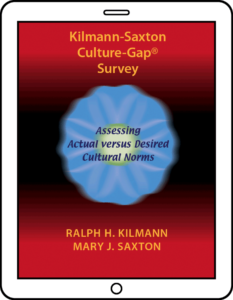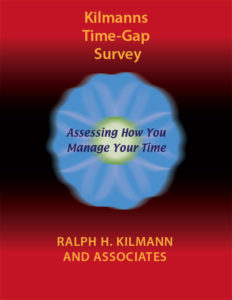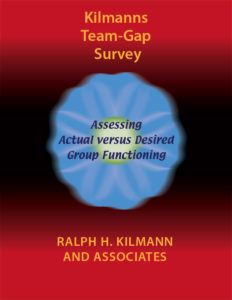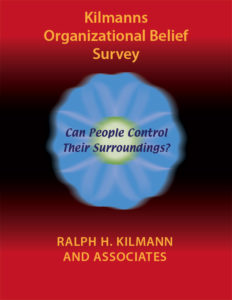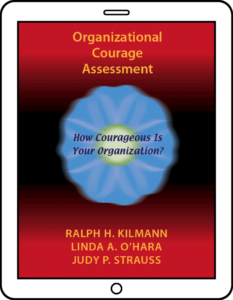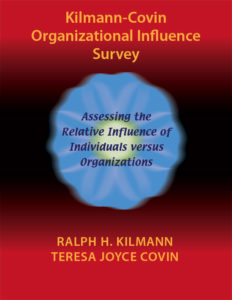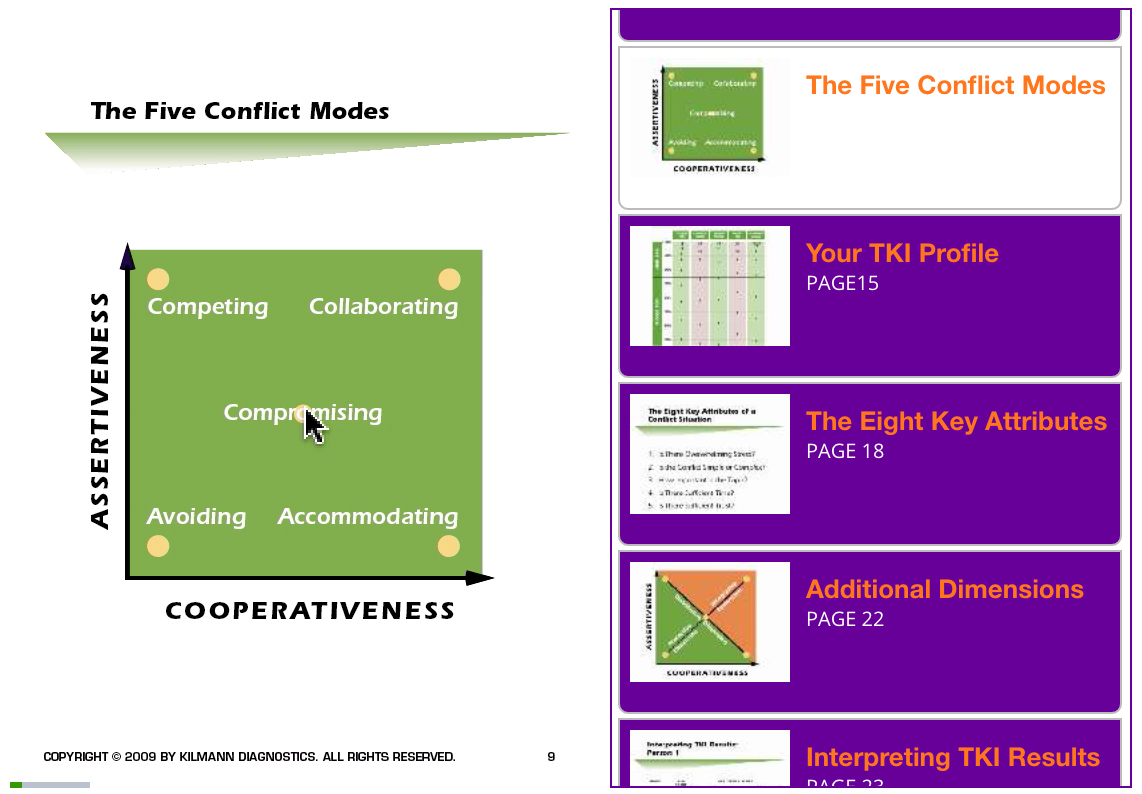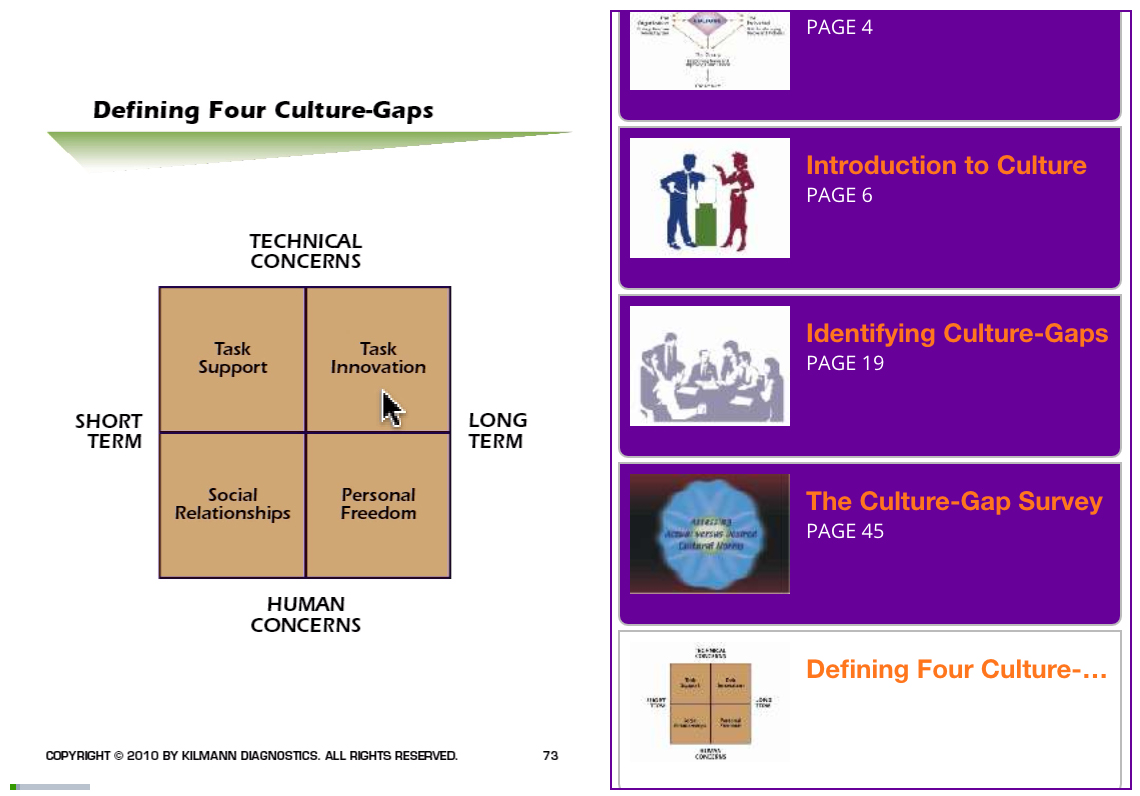TAKE DR. KILMANN’S SUITE OF ASSESSMENT TOOLS TO DISCOVER HOW YOU CAN BETTER MANAGE CONFLICT, CHANGE, CONSCIOUSNESS, AND TRANSFORMATION
Kilmann Diagnostics is the exclusive provider of online training and certification for interpreting the Thomas-Kilmann Instrument (TKI). Along with co-developing the TKI assessment, Dr. Kilmann has also authored eight additional self-report assessment tools that highlight the underlying dynamics of transformation: Personality Styles, Culture-Gaps, Time-Gaps, Team-Gaps, Organizational Beliefs, Organizational Influence, Organizational Courage, and Organizational Conflict. All these assessment tools are discussed throughout our integrated series of online courses, since these assessments enable participants to become much more aware of the key role they play in achieving organizational success and personal meaning.
Assessing Conflict-Handling Behavior
One TKI Assessment
Per Person
The TKI allows you to discover whether you might be overusing or underusing one or more of five conflict-handling modes (collaborating, competing, compromising, accommodating, and avoiding), so you can improve how you manage conflict in the future.
Two TKI Assessments
Per Person
By taking one TKI specifically for INSIDE your group and another TKI for OUTSIDE your group, you’ll discover how your leader, the culture, and the reward system might be having undue influence on how conflict is being managed in your group or team.
The TKI Team Report for
All Kinds of Groups
After completing the TKI assessment, every team member will receive a personalized report that uncovers the particular OBSTACLES to effective conflict management along with several recommended REMEDIES for improving their team’s performance and member satisfaction.
Kilmann Organizational
Conflict Instrument
The KOCI reveals how often you are being negatively affected by the various systems conflicts in your organization (e.g., culture, strategy-structure, and rewards) and which conflict modes you tend to use too much or too little for resolving those systems conflicts.
Assessing Personality and Culture
Personality Style
Instrument
This instrument assesses a person’s preferences for collecting information and making decisions, as based on the personality dimensions that were originally developed by C. G. Jung: ST, NT, SF, and NF types or styles for
approaching problems and conflicts.
Culture-Gap®
Survey
This assessment allows you to discover the differences between actual and desired cultural norms in four areas: task support, task innovation, social relationships, and personal freedom. Once identified, a group can take steps to close these culture-gaps.
Assessing Time-Gaps and Team-Gaps
Time-Gap
Survey
This survey pinpoints five key areas in your work life in which you might not be making the best use of your time. The results then suggest how you can reallocate the time your spend on tasks and activities in order to achieve your group or organization’s goals.
Team-Gap
Survey
This survey looks at the differences between actual and desired behavior in four key areas: cultural norms, people management, problem management, and time management. If any of these four team-gaps are significant, members can then close these gaps.
Assessment Tools for
Beliefs, Courage, and Influence
Organizational
Belief Survey
This survey assesses if you believe that your performance is largely determined by outside forces (such as your boss or coworkers) or by inside forces (your own decisions and actions). The results lead to new beliefs that encourage greater personal empowerment.
Organizational Courage Assessment
This assessment relies on two dimensions (observing acts of courage and fearing acts of courage) to define four organizations. Steps can then be taken to transform a fearful or bureaucratic organization into a more courageous or quantum organization.
Organizational Influence Survey
This survey assesses whether you have the right balance of influence over the key aspects of your job that determine your performance and satisfaction. If you have too little (or too much) influence, steps can then be taken to create the right balance.
BENEFITS OF TAKING OUR ASSESSMENT TOOLS

LEARN DIRECTLY FROM THE CO-CREATOR OF THE RENOWNED TKI ASSESSMENT TOOL: Dr. Ralph Kilmann is the co-author of the Thomas-Kilmann Instrument (TKI), which is the world's leading assessment of conflict-handling behavior. To date, more than 8,000,000 copies of the TKI have been sold. Dr. Kilmann has been using the TKI since the time it was conceived in the early 1970s, while he was still completing his Ph.D. degree in the behavioral sciences at UCLA. All of our three online courses on conflict management, therefore, enable you to learn—directly from the author himself—how to use the TKI assessment for dramatically improving how individuals, groups, and organizations manage their conflicts.

LEARN DIRECTLY FROM THE CO-CREATOR OF SCORES OF BOOKS, ARTICLES, AND ASSESSMENT TOOLS: Dr. Kilmann has also authored more than 20 books, 100 articles, and 10 assessment tools for change management. This extensive knowledge—which was developed during his 30 years of research, teaching, and consulting as a chaired professor at the University of Pittsburgh—is utilized throughout our online courses. To ensure that all his knowledge would be perfectly translated into our series of courses on conflict, change, consciousness, and transformation, Dr. Kilmann personally created all the slide presentations and course materials—which was made possible by his undergraduate major in graphic arts at Carnegie Mellon University.

EXPERIENCE A CLOSE-UP VIDEO PRESENTATION ACCOMPANIED BY A CRYSTAL-CLEAR AUDIO RECORDING: On the video of each presentation slide, you’ll see Dr. Kilmann’s very visible pointer gracefully moving from one bulleted item to the next (or from one section of a diagram to another), perfectly in sync with his studio-recorded verbal presentation. As a result, you’ll have a front-row seat for every video presentation, along with a crystal-clear recording for the audio, in every one of our online courses. If you have a high-resolution computer, laptop, tablet, or smartphone, you’ll see every pixel and hear every word during each video presentation.

ENJOY WATCHING OUR COURSES, TAKING OUR ASSESSMENTS, AND READING OUR BOOKS ON OUR ADVANCED E-LEARNING PLATFORM: Since all our courses are recorded and then streamed on the very best e-learning platform available, you can fully enjoy Dr. Kilmann’s unique onscreen presentations on your laptop computer or mobile device—anywhere, anytime, and at your own pace. You can also take the TKI and several other assessment tools on such a high-end, online venue. Lastly, our course manuals and most of our workbooks, audiobooks, and presentation slides are available in a pdf format for your online learning convenience.


